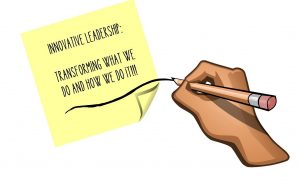
At the beginning of this year 2016, Marc Wittmann, a researcher fellow at the Institute for Frontier Areas of Psychology and Mental Health in Freiburg, Germany, published “Feel Time”, a book talking about the psychology of how we perceive time. How the perception of time is varying along our lives.
From Children that have trouble waiting for anything to older people where the years are flitting by without a pause. A fulfilled and varied life plenty of mindfulness will give us the feeling of time and improving that sense.
But he talked about it years ago, together with Sandra Lenhoff when they were in the Ludwig-Maximilian University of Munich, in Psychological Reports. They studied a sample of time perception by 500 subjects, from 14 to 94 years old. Although empirical results brought them some controversial, results supported the widespread perception that the time speeds up with the age.
For all the generations that share the same workplace nowadays and in the future, they will have to have a common feeling, time flies when we are having fun. Likely this can make time appear to pass more quickly in the moment, but what is more important is that later on, we will remember our activities to have lasted longer than we could feel in the moment that happened.
In other words, the newer memories we build, the longer that trip will seem for our brains.
This combination can bring to our lives mental and physic health that for next decades will be critical for our organizations. Rising life expectancy will change everything for all of us.
Since 1840, every year has brought an increase in life expectancy of three months with extraordinary constancy. A child born in the West today has more than a 50 per cent chance of living to 105. Such forecasts could even be a massive underestimate depending on your assumptions about future innovation in medical science – according to some researchers, the first person who will live to 500 or even 1000 years has already been born. Estimations are that all the population in age to be retired, means 65 years, in 2030, they will have a life expectation overpassing 90 years
Lynda Gratton and Andrew Scott of London Business School argue in their new book, “The 100-Year Life”, that the current three-stage model of life we have today – childhood, career, retirement – will be stretched to breaking point, with people either forced to save such huge amounts during their career that they enjoy dramatically lower living standards in their prime years or required to work much longer than they might feel capable of.
We must be able to manage this change in our world that together with very important changes in digital transformation and others will make us managing our organizations in a very different way.
Living together different generations in the workplace will be one of these changes. We must understand that people in their 20s and 30s, even those in their 40s and 50s, need to come to terms with the fact that the gift of longevity means they will not simply be able to emulate the lives of their parents. It will mean much more than this.
Baby boomers, Gen X, Gen Y (our famous millennials) and Gen Z are already together with a world in front of them very different as they could imagine when they started or dreamed starting their careers.
To accomplish organizational goals, workers from all generations must identify common ground and develop the ability to communicate, cooperate, and value each other’s differences. This is not future fiction; this is already with us.






